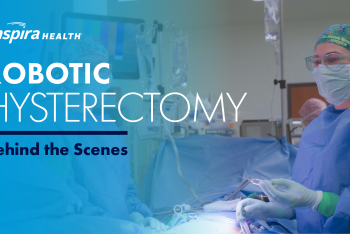Understanding the most common surgeries can help prepare patients for potential procedures. Knowing...
Read More
Appendicitis is a medical emergency that almost always requires immediate surgery to remove the appendix, called an appendectomy before it bursts. In the U.S., 1 in 20 people will get appendicitis as a result of a blockage in the appendix.
Appendicitis is the inflammation of the appendix, a small organ in the lower right abdomen. The condition often begins with vague abdominal pain that intensifies and localizes around the appendix. Prompt medical attention is crucial, as untreated appendicitis can lead to a burst appendix, causing severe complications like peritonitis, or inflammation of the tissue lining the abdominal cavity.
If you have appendicitis, you might begin to feel vague abdominal pain in the lower right abdomen, accompanied by symptoms like nausea, vomiting and fever.
Other symptoms may include abdominal pain starting around the belly button and shifting to the lower right abdomen, nausea and vomiting, loss of appetite, low-grade fever, abdominal bloating and tenderness, inability to pass gas, diarrhea, constipation, general malaise and fatigue, and sharp pain that worsens with movement, coughing or sneezing.
Diagnosing appendicitis involves a medical history assessment, physical examination and diagnostic tests. Physicians inquire about symptoms, focusing on abdominal pain, and perform a physical examination to identify tenderness and signs of peritonitis. Blood tests like a white blood cell count and imaging studies like ultrasound or CT scans help confirm the diagnosis.


An appendectomy is the surgical removal of the inflamed appendix, usually performed using minimally invasive techniques for a quicker recovery.

In some cases, mild appendicitis may be treated with antibiotics alone, though surgery is a more common and definitive approach.

For abscessed appendicitis, a pocket of infection, a drainage procedure may be performed to remove pus from the abdominal cavity before surgery.
Inspira’s emergency rooms are staffed with experienced surgeons who can quickly remove an inflamed appendix before it bursts or perforates, releasing its infectious contents into the abdominal cavity.
Appendicitis symptoms often include abdominal pain that starts near the belly button and migrates to the lower right abdomen, accompanied by nausea, vomiting and fever.
While rare, someone can develop appendicitis more than once. However, surgical removal of the appendix usually prevents future occurrences.
There is no definitive cause, but factors such as age (common in teens and twenties), family history and certain conditions may increase the risk of developing appendicitis.

Understanding the most common surgeries can help prepare patients for potential procedures. Knowing...
Read More
Amanda Mirmanesh, D.O., is an OB/GYN at Inspira Medical Center Vineland. Follow her as she arrives...
Read More
Preparing for surgery can feel overwhelming, but there are ways to minimize your anxiety and focus...
Read More